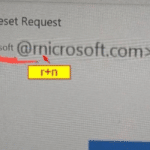Taking card payment security has never been more important; protecting cardholder data is necessary for legal compliance, and all businesses must prioritise following PCI DSS when taking card payments over the phone or online.
An information security standard aimed at minimising payment card fraud by strengthening the security measures that protect cardholder data.
Having a secure and bulletproof PCI provider will boost customer satisfaction and trust. Our PCI providers at Silver Lining Convergence offer omnichannel solutions which ensures you’re covered wherever payment comes via SMS, webchat, emails, social media, etc.
There are many ways to take payments from customers, Digital payments being one of them. This includes engagement channels such as web chat, WhatsApp, social media, SMS and email.
This enhances the customer experience by offering them the option to use a preferred payment method. In 2022, Total Card Fraud increased by 6%, which underscores the need to ensure that your customers' cardholder data security is more important than ever.
How Silver Lining can help: With just a couple of clicks, you can fill out a form that will be sent to one of our experts, who will then be in touch with you. We are a Level 1 PCI DSS-certified Service Provider, ensuring you are in the best hands when choosing your PCI software.
Firewalls act as the first line of defence between your internal systems and potential threats from the outside world. They monitor and control the incoming and outgoing traffic based on security rules set by your organisation.
In PCI DSS, having a properly configured firewall helps prevent unauthorised access to cardholder data and stops malicious traffic before it can cause harm. For businesses, this means ensuring that your internet connections and networks are protected by firewalls that are regularly reviewed and updated.
Using default or weak passwords is like leaving your shop doors unlocked overnight, making you an easy target. PCI compliance requires businesses to enforce strong, unique passwords and change any default credentials that come with hardware or software.
Good password practices include:
Not all businesses need to store cardholder data, and if you don’t need it, it’s best not to store it at all. But if you do, PCI DSS outlines strict rules on how that data must be protected.
This includes:
Whenever cardholder data is sent over open or public networks (like the internet), it must be encrypted, which means turning it into a scrambled code that only authorised parties can read.
For example, when a customer enters their card details into a website, SSL/TLS encryption ensures that data is protected as it travels from their browser to your server.
This step is crucial to prevent criminals from intercepting sensitive information during transmission.
Cyber threats evolve constantly, and new malware is discovered almost daily. PCI DSS requires all businesses to install, maintain, and regularly update antivirus software to protect systems from viruses, spyware, ransomware, and other malicious attacks.
Antivirus software acts like a digital security guard, scanning devices for threats and blocking suspicious activity. It should also be:
Not everyone in your organisation needs access to cardholder data. In fact, PCI DSS promotes the principle of least privilege, meaning employees should only have access to the data necessary for their job.
This includes:
PCI compliance isn’t just a “set it and forget it” process; it requires ongoing monitoring and testing to catch vulnerabilities before they become problems.
All of these are something we can take care of at Silver Lining Convergence.
Monitoring includes:
Testing includes:
A real-life example - TJX Companies:
Ensuring that employees who handle payment data are appropriately trained. This training could include areas like;

